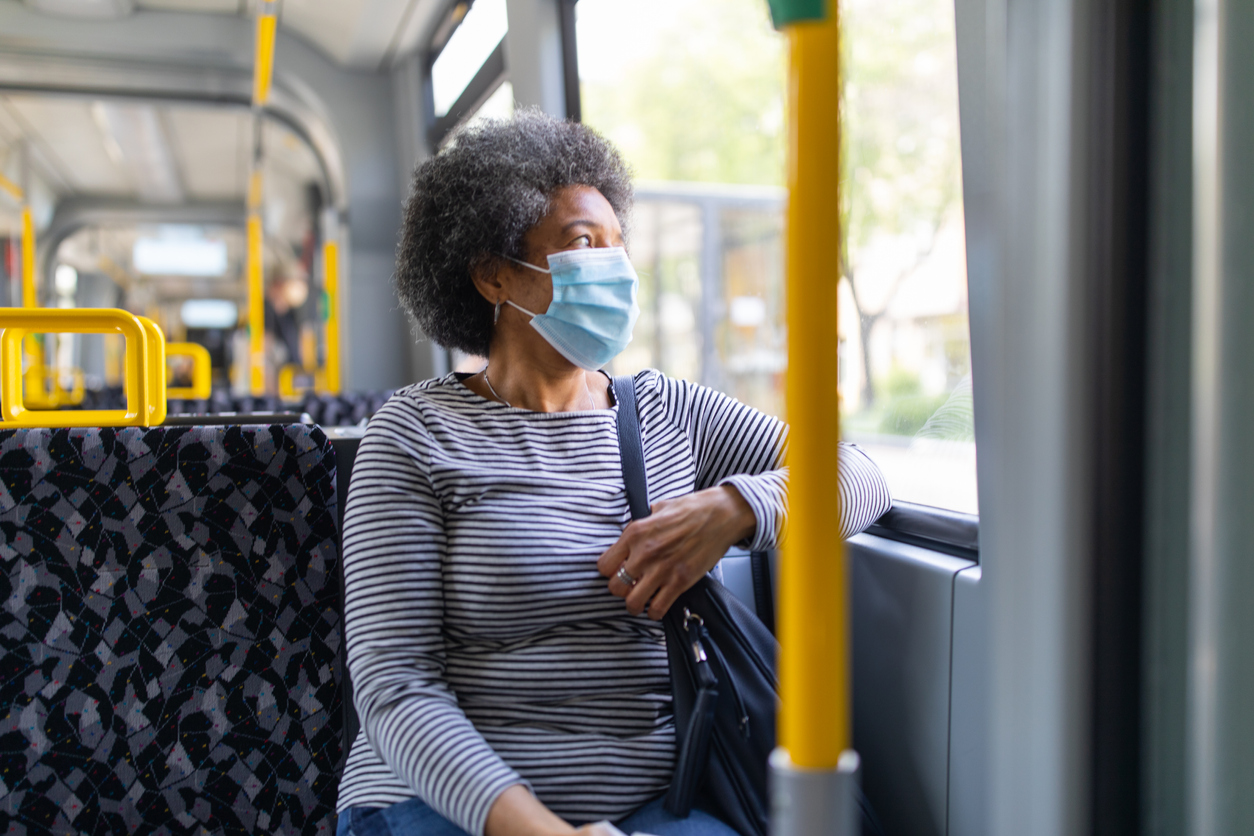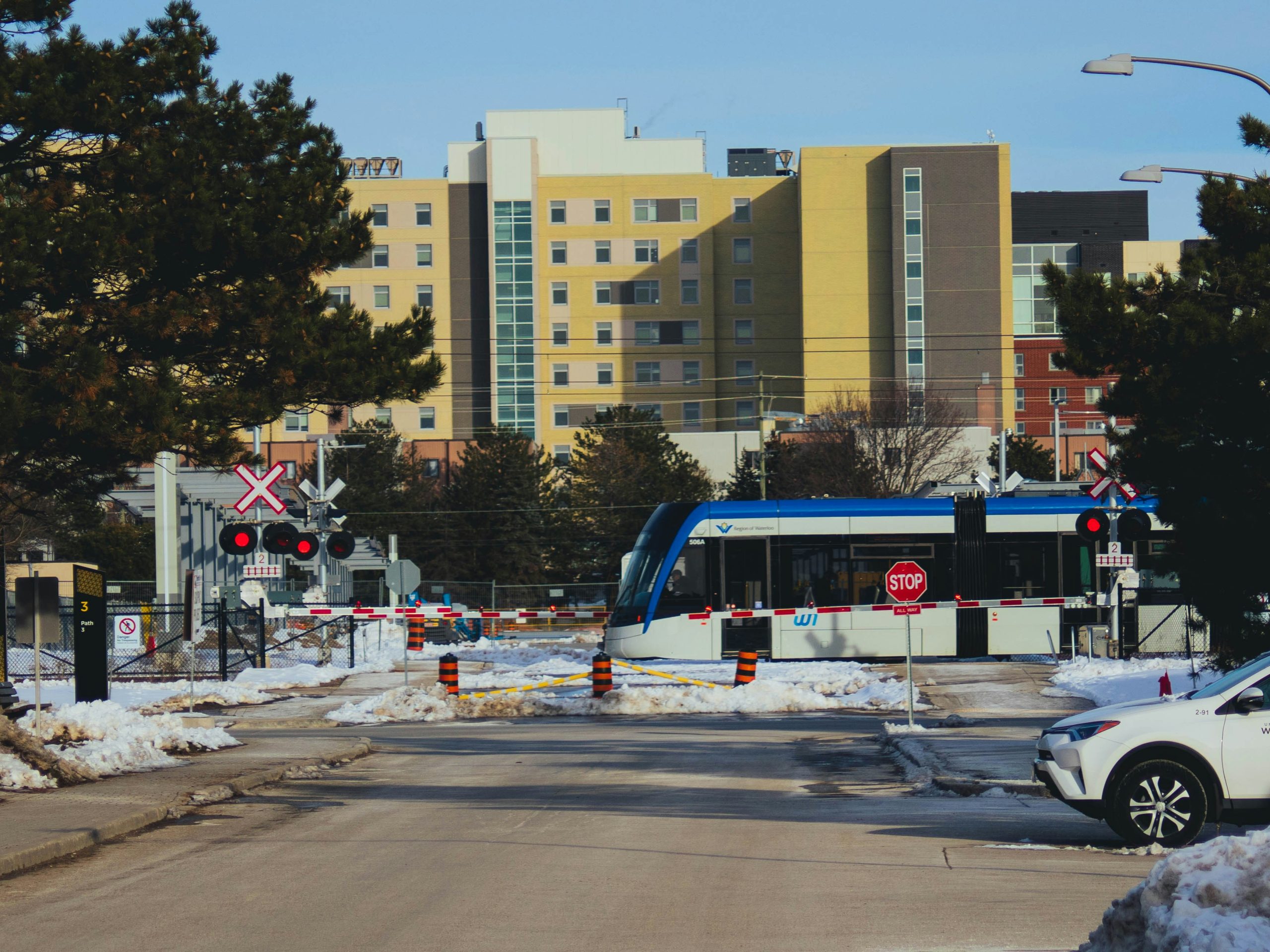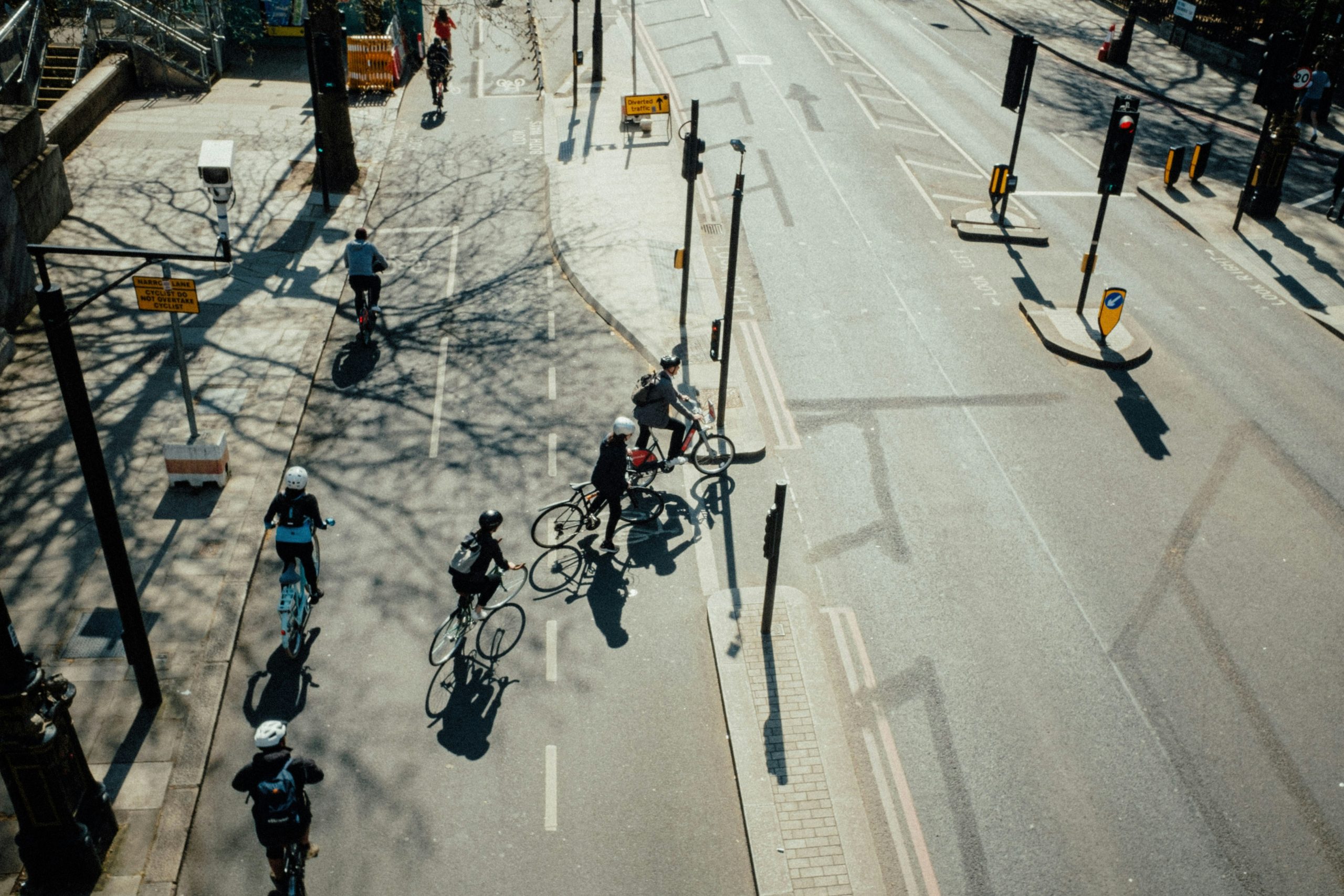Featured Guest
You’ll find this guest among our growing roll of Urban Champions.
-
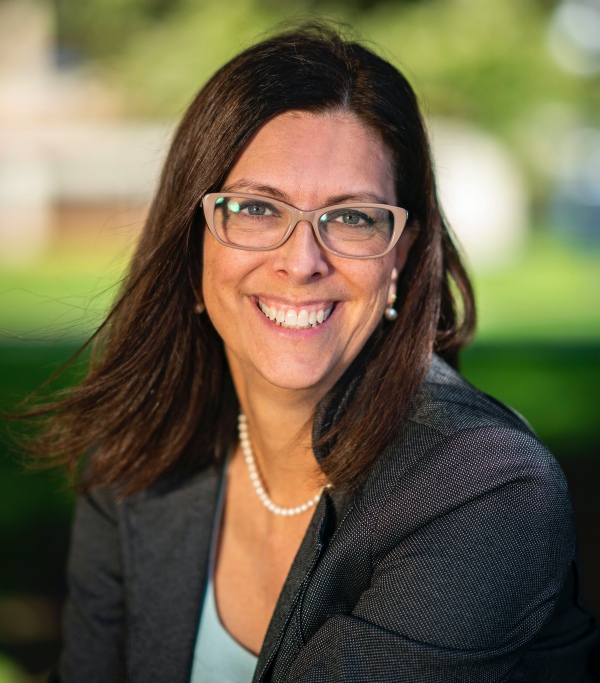
Stephanie Cadieux
MLA, Surrey South
-
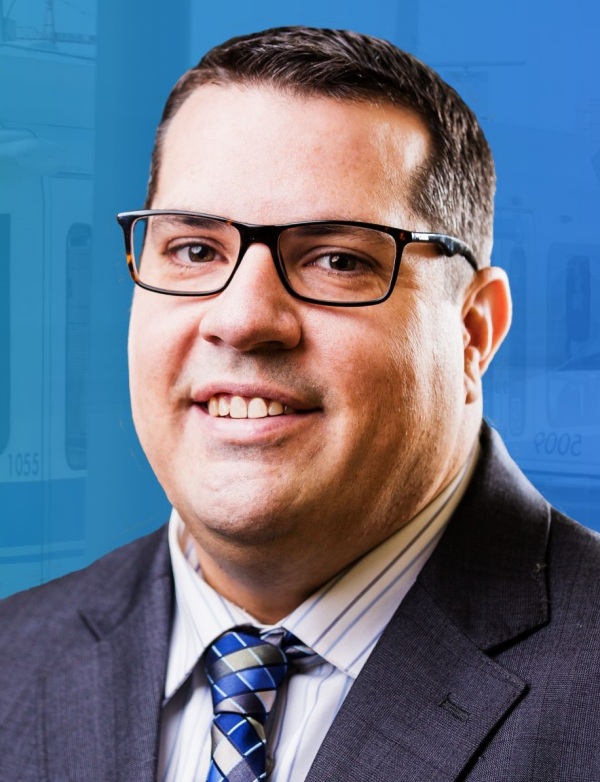
Eddie Robar
Branch Manager Fleet & Facility Services, City of Edmonton
-
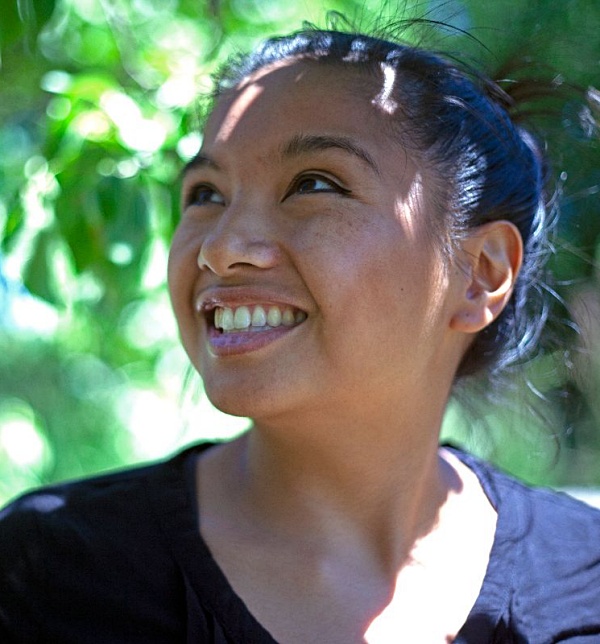
Armi de Francia
Active Transportation Coordinator, The Corporation of the Town of Ajax
-

Amina Yasin
Co-Chair, Canadian Institute of Planners Social Equity Committee
5 Key
Takeaways
A roundup of the most compelling ideas, themes and quotes from this candid conversation
1. Funding for public transit should be prioritized
Public transit is an essential service across Canada, yet these services continue to go underfunded. Public transit agencies remain dependent on fare revenue – this proved especially challenging in the wake of the COVID-19 pandemic as ridership plummeted. This new reality begs the question of how best to fund effective, accessible transit, including whether fares need be charged at all.
2. Fare evasion must be considered through an equity lens
Amina Yasin explained how transit systems are not neutral, nor are the means by which they operate. For example, the policing of fare evasion poses a particular challenge, as she argues that Black, Indigenous, and racialized riders are often subjected to higher levels of surveillance and more frequent fines.
3. Transit must be universally accessible and affordable
Another prominent equity issue discussed by panelists is that of affordability. In recent years, a number of municipalities across Canada have made efforts to provide more affordable transit to low-income Canadians. Armi de Francia explained how, during and following the pandemic, we need to further the conversation around affordable transit options.
4. We need to think about who we are designing transit for and why
Stephanie Cadieux argues that cities need to fundamentally re-think the design around systems of mobility. This includes becoming more cognizant of who transit services are being designed for and why. Conversations around equity must become inherent to transit design in order to ensure that these systems are inclusive of all users – equity and mobility are inextricably linked.
5. Mobility is constantly changing
Within the last four months, the ways that people move have fundamentally changed and many of these changes will persist beyond the pandemic. Indeed, Eddie Robar argues that there will be no return to a pre-COVID “normal” when it comes to public transit. Other mobility options, such as on-demand transit, are also worth considering.
Additional Reading & Resources
Whose Streets? Black Streets by Amina Yasin (The Tyee)
In Japan and France, Riding Transit Looks Surprisingly Safe (Bloomberg)
Returning to Work on the Subway? Here’s What You Need to Know (New York Times)
A Tale of Two Truths: Transportation and Nuance in the Time of COVID-19 (Medium)
‘Safe Streets’ Are Not Safe for Black Lives (Bloomberg CityLab)
Full Panel
Transcript
Note to readers: This video session was transcribed using auto-transcribing software. Manual editing was undertaken in an effort to improve readability and clarity. Questions or concerns with the transcription can be directed to events@canurb.org with “transcription” in the subject line.
Full Audience
Chatroom Transcript
Note to reader: Chat comments have been edited for ease of readability. The text has not been edited for spelling or grammar. For questions or concerns, please contact events@canurb.org with “Chat Comments” in the subject lin
From Canadian Urban Institute: You can find transcripts and recordings of today’s and all our webinars at https://canurb.org/citytalk
12:01:49 From Abby S: Hello from Tkaronto
12:01:58 From Laurel Davies Snyder: Hello from Stratford, ON
12:02:19 From Canadian Urban Institute: Welcome! Folks, please change your chat settings to “all panelists and attendees” so everyone can see your comments.
12:02:27 From [Comment Removed]
12:02:31 From Lisa Slater to All panelists: Hello from Guelph, ON
12:02:39 From Yuri Artibise to All panelists: Hi Amina!
12:02:43 From Canadian Urban Institute: You can find transcripts and recordings of today’s and all our webinars at https://www.canurb.org/citytalk
12:04:03 From Anika Abdullah: So excited for this discussion! Greetings from St. Catharines
12:04:23 From Canadian Urban Institute: Keep the conversation going #citytalk @canurb
12:04:25 From Matthew Sweet: hi from Mississauga! excited to hear everyone
12:04:30 From Rida Khan: Hello from Kitchener! thanks for this talk
12:05:21 From Caroline Poole, CUI Staff: Today’s panelists are:
Stephanie Cadieux: https://twitter.com/Stephanie4BC
Armi de Francia: https://twitter.com/a_defrancia
Amina Yasin: https://twitter.com/bambinoir
Eddie Robar: https://www.linkedin.com/in/eddie-robar-4195a732
12:05:30 From Jonathan Giggs: Jonathan Giggs from Port Credit in Mississauga
12:05:30 From Kulwinder Sarai to All panelists: Hi everyone. Kulwinder from Calgary
12:05:31 From Bernice Paul: Hello from Vancouver! Special hi to Stephanie and Amina over on the west coast.
12:06:08 From Anneke Smit to All panelists: Hello from Windsor and the Windsor Law Centre for Cities. Thank you CUI for hosting this important discussion.
12:06:35 From Canadian Urban Institute: Reminding attendees to please change your chat settings to “all panelists and attendees” so everyone can see your comments. Thanks!
12:07:09 From Anneke Smit: Hello from Windsor and the Windsor Law Centre for Cities. Thank you CUI for hosting this important discussion.
12:07:31 From Gil Penalosa: Thanks to CUI and Mary Rowe for excellent series of webinars over many weeks. Great opp to learn and also ‘meet’ many superb people, as today’s panelists. Keep it going.
12:09:25 From Catalina Parada: Great! in Toronto Wheel-trans (the paratransit branch of ttc) adapted to provide single rides
12:09:59 From Anneke Smit: https://www.bloomberg.com/news/articles/2020-06-09/japan-and-france-find-public-transit-seems-safe
12:10:11 From Justin Jones: The understanding I have from the WTO is that with Masks on transit it can be quite safe
12:10:17 From Justin Jones: WHO not WTO
12:11:27 From [Comment removed]
12:11:28 From Catalina Parada: true! I think it has a lot to deal with people’s perceptions of safety
12:12:46 From Joe Arruda to All panelists: do you think free transit would help folks who do not have cars and live in areas with unsafe cycling infrastructure ?
12:12:47 From Luna Aixin to All panelists: I have had many experiences getting on one stop after getting on due to feeling very unsafe with my intersecting identities with race and gender.
12:13:08 From David Crenna: Essential to see the evidence from New York City where the initial belief was that the system acted as a superspreader, perhaps because of no precautions taken. More recent scientific data?
12:13:18 From Lin Wong: Amina 👏👏👏👏👏👏👏👏
12:13:20 From [Comment removed]
12:13:36 From Catalina Parada: *clapping emoji* to Amina
12:13:46 From Luna Aixin to All panelists: thanks Amina.
12:14:00 From Daniella Fergusson: Hi [User], maybe we should have free transit instead. Problem solved.
12:14:06 From mary margaret gelinas to All panelists: Thanks Amina.
12:14:07 From Sarah Webb to All panelists: Absolutely privatization of transit is a major concern – not only for BIPOC and those with disabilities
12:14:10 From Justin Jones: With respect, [User], that’s an incredibly privileged point of view. If you think that people that obey the laws have nothing to fear, you’re not listening to the concerns of BIPOC.
12:14:12 From mary margaret gelinas to All panelists: https://thetyee.ca/Analysis/2020/06/18/Whose-Streets-Black-Streets/ her article
12:14:21 From Yuri Artibise: Amina’s Tye article: https://thetyee.ca/Analysis/2020/06/18/Whose-Streets-Black-Streets/
12:14:38 From Matthew Sweet: public transit = public space. love it
12:14:39 From Safeeya Faruqui: Thank you Amina!
12:16:19 From [Comment removed]
12:17:02 From Luna Aixin to All panelists: can someone please address [User] who has just drop anti-black racism?
12:17:36 From Sabat Ismail to All panelists: @[User] stop centring yourself there are disparities in gentrified downtown& midtown Detroit and the rest of the city
12:17:56 From Canadian Urban Institute to [User] and all panelists: [User], please refrain from making anti-black statements here. they are not welcome. You will be removed if it continues.
12:17:59 From Justin Jones: If that’s your POV, I wonder why you are here.
12:18:17 From Gil Penalosa: There have not been any outbreak in transit. Cities in South Korea, Taiwan, Singapore, etc., are moving at 90-100% capacity; BC at 66%; Ontario at 33%. If people wear mask, it’s very safe. An additional measure, silent transit. It’s irresponsible to have allowed myth of ‘unsafe transit’. Cities are losing hundreds of millions which will be less funds for education, parks, housing, new transit, etc. Urgent need to re-activate transit. transit. Cars? Simple geometry, they do not fit. As complement to transit, we need citywide networks of protected bikeways. In Toronto, all protected bikeways and weekend Open Streets are in wealthier areas; equity issue. Must focus on priority neighbourhoods.
12:18:19 From Sabat Ismail to All panelists: and white flight as a byproduct of anti Black racism is why the city is where it is at
12:18:25 From Canadian Urban Institute to Luna Aixin and all panelists: on it. He’s been told to stop.
12:18:30 From [Comment removed]
12:18:41 From Luna Aixin: thank you moderator
12:19:54 From Lin Wong: [User]: racial issues are absolutely transportation issues. If you can’t see that then I also ask why you’re here
12:19:56 From Matthew Sweet: it’s all connected [User], that’s why.
12:20:07 From Daniella Fergusson: Hi [User], I don’t know why you’re here. If you’re wondering about Chicago, you might want to check out Richard Rothstein’s Color of Law. Here’s a video summarizing it https://vimeo.com/328684375 and here’s a discussion about it https://la.streetsblog.org/2017/09/28/america-walks-walking-toward-justice-series-the-color-of-law-and-residential-segregation/
12:20:10 From Sarah Webb to All panelists: Support for community-led cycling repair programs and DIY centres is high yet these are almost exclusively run by non-profits. Grant programs are non-existent and support to manage spaces with COVID-19 is limited. Investing in community led programs to support increased ridership and access to bikes is critical
12:20:25 From Justin Jones: Read Amina’s article. Read the recent articles by Dr. Destiny Thomas. It’s not the job of the folks here to educate you on the basics. If you’re not willing to listen with empathy and understand that people’s experiences are different than your own, then there’s nothing here for you.
12:20:34 From Leigh Stickle: Thanks Daniella and Justin
12:20:45 From Cibele Donato: I wonder how cities are going to move forward and re access standards for sidewalks width? Daniel Rotsztain did a very interesting experiment in Toronto walking around with a 2m diameter hoop to highlight the issue of maintaining appropriate social distance.
12:20:59 From Michael Roschlau: Question to Eddie – if ridership is at 50% and service levels at 50%, does that mean the level of crowding is the same as it was pre-COVID?
12:22:19 From [Comment removed]
12:22:34 From Sarah Webb to All panelists: Eddie – how are you approaching changes to transit shelters / stop design — now and in the future as we consider public health but also climate change impacts and ridership changes?
12:22:36 From Gil Penalosa: Montreal and Paris building over 200 kilometers of protected bike corridors. Other cities doing additional over 100 kilometers as Bogota, London, Berlin, NYC, Mexico City… Most Canadian cities missing the moment; if not citywide, if no connectivity, they do not work. More than half of trips in Canadian cities are under 5Km, easily done in 15 min on bike. It’s equity if city prioritizes lower income areas
12:22:42 From Justin Jones: Safe Streets are not safe for black lives – Dr. Destiny Thomas https://www.bloomberg.com/news/articles/2020-06-08/-safe-streets-are-not-safe-for-black-lives
12:22:52 From David Crenna: Here’s an article on what the NYC transit authorities have done to increase ridership: https://www.nytimes.com/2020/06/08/nyregion/mta-subway-riding-health-coronavirus.html.
12:24:22 From Luna Aixin: I would like to point out that [User]’s presence here is creating unsafety with blatant racist remarks.
12:24:33 From Canadian Urban Institute: He has been removed.
12:24:36 From Cheryl Cohen: If public transit had been made free years ago, there would be no issue with smaller usage during Covid19.
12:24:38 From Justin Jones: Thank you
12:24:41 From Laurel Davies Snyder: thank you
12:24:42 From Lin Wong: thank you!!!
12:24:44 From Luna Aixin: thank you.
12:24:45 From Matthew Sweet: thank you
12:24:47 From Clara Kwon to All panelists: thank you.
12:24:49 From Angela Jarvis: Thank you
12:24:51 From Cheryl Cohen: Thank you for removing [User].
12:24:58 From Elizabeth MacLeod: Thank you!
12:25:02 From Shilpa Dogra: Amazing, thank you!
12:25:15 From Jamilla Mohamud to All panelists: there is no such thing as “privilege anti-white statements”. you’re nit engaging with the content infood faith and are doing your best to derail the discourse to centre your racist views. Just go away.
12:25:20 From Jyoti Pathak: Thank you!
12:25:25 From Jamilla Mohamud to All panelists: *not
12:25:47 From Alheli Harvey: y’all that took too long, but thanks
12:25:48 From Lisa Slater: Thank you for calling him out and for removing him. We all have to have the courage to call out racism when it presents itself.
12:25:48 From Steven Farber: Massive e-bike subsidization program, geared to income, would help provide tangible options
12:26:01 From jay pitter to All panelists: Hello Baby Sis xo
12:26:15 From Jamilla Mohamud to All panelists: *in good faith
12:26:24 From Justin Jones: Not only e-bikes, but adaptive cycling as well. Adaptive bikes can be massively expensive!
12:26:28 From Abby S: Thank you for removing him.
12:27:11 From jay pitter to All panelists: Absolutely Amina!!!!!
12:27:46 From Matthew Davis: A quick win would be to actually remove the barriers in place that block people from even using bike share.
12:27:58 From Matthew Davis: No reason why it takes a credit card to access a bike
12:28:01 From Anika Abdullah: Well said, Amina!
12:28:37 From Abby S: Yes Matthew…credit card is the first barrier. Also would like to see where the bike stations are located.
12:28:42 From Justin Jones: There’s a great model for a barrier-free (no CC required) program for Bike Share in Hamilton, Ontario.
12:28:43 From Justin Jones: https://www.everyonerides.org/
12:28:58 From Ryan Hanna to All panelists: Something I’ve never understood is why most bike share programs cost $3 for a 30 minute ride, versus the same amount for around 2 hours access on transit vehicles
12:29:01 From jay pitter: Class is in session. Yes Amina!!! Go baby sis.xo
12:29:02 From Sarah Webb to All panelists: AMEN – Federal government role in investing in public transit is fundamental. They are missing from the conversation and the investment table
12:29:23 From Abby S: Are bikes a significant contributor to accessible transportation?
12:29:34 From Abby S: I mean bike-share programs.
12:29:42 From Mike Prescott: From a PWD perspective, I think we need a strategic, multi-modal approach which means more research because none currently exists.
12:30:05 From jay pitter: Yes, it is important to embrace complexity.
12:30:26 From Leigh Stickle: No decision is neutral. Such an important point, thanks Amina
12:30:55 From Cheryl Cohen: Yes, free transit!
12:31:05 From Elizabeth MacLeod: Yes!
12:31:16 From Justin Jones: If we truly view mobility as a human right, how can we make a conscious choice not to make transit free?
12:31:16 From Clara Kwon: Amina, yes. 💯 inability to hold and perceive complexity is a major deficit. more diverse voices need to be at the decision-making table.
12:31:31 From jay pitter to All panelists: Yes Amina — schoolin’
12:31:48 From Lisa Slater: Yes, free public transit will help everyone as well as the environment!
12:31:54 From Abby S: Do any transportation systems charge less for the further you are forth core? In other words, make commuting from high priority areas free, but downtown financial systems cost more…maybe too complex.
12:32:05 From Abby S: From the core (should read)
12:32:11 From David Crenna: Yes, essential to have the data on actual bike use by the most vulnerable groups for routine activities, like taking their children to day care, and in winter…
12:33:43 From Michael Roschlau: Providing fares that are geared to income is much better than free transit. Making things free debases their perceived value. Furthermore, it would discourage walking and cycling, overcrowd the system and place a huge burden on the tax base when many riders can afford to pay.
12:34:02 From Daniella Fergusson: Hey Abbt, in Metro Vancouver the opposite was true for a long time because of how the fare zones work. But the fare system is now based more on distance traveled. Some places make the core free. Like Portland’s MAX (streetcar) is free in the core. Some places do that with buses. Another whole thing is the level of service and cost of transit in rural areas
12:34:34 From Gil Penalosa: The only INDIVIDUAL mode of mobility for most people is to walk and ride bicycles, including all children and youth under 16 yr/o. It must be safe and enjoyable for all, as a right. Unless someone thinks that individual mobility is just for those who have the age, money and desire to have a car
12:34:40 From David Crenna: WHO and others are now focusing much more on airborne transmission as the main source of COVID-19 infections, so what new research has been done on air filtration on transit systems?
12:34:58 From Kulwinder Sarai: From Kulwinder… thank you very much.
12:35:01 From Jamilla Mohamud to All panelists: yes! such critical questions “who are we designing for and why?”
12:35:02 From Anika Abdullah: Yes Stephanie!! If we don’t budget for accessibility from the beginning how will we create accessible options?
12:35:13 From Abby S: @Daniella, yes aware of distance being more..but I wonder if it should be reversed to that it would bring those outside the core into the core…
12:36:25 From Leigh Stickle: A possible negative side effect might be encouraging sprawl and increasing emissions
12:36:37 From Shilpa Dogra: And let’s not forget about older adults. Transportation options are critical to prevent social isolation.
12:36:52 From Abby S: We need political will and a lot of imagination…
12:37:03 From jay pitter to All panelists: True adjusting and adapting is assign of inequitable design. Physical and social accessibility should be centred and entrenched in ALL infrastructure design.
12:37:11 From Abby S: @leigh True true.
12:37:20 From jay pitter to All panelists: *a sign
12:37:38 From Abby S: (although depends upon mode of transport wrt to emissions)
12:37:38 From Daniella Fergusson: Thank you Shilpa – there’s so much moralizing about whether it’s ok for people to take the bus one or two stops when they “could just walk instead” – and for folks with disabilities or older folks, it might make a real difference just to take the bus for a stop or two
12:37:41 From David Crenna: The whole inter-urban bus transit system has essentially collapsed, which is important for those in rural areas and small towns who don’t drive. What is the situation of those people, many of them elderly and needing to get to the doctor in cities…
12:37:43 From Catalina Parada: Thanks Stephanie! It is imperative to consider everyone’s needs at the very inception of transportation decisions
12:38:02 From Anika Abdullah: @Shilpa this is more important than ever. Social isolation has significant impacts on communities and individuals
12:38:27 From Catalina Parada: it’s sad to see projects where the “accessibility” and “equity” sections are one paragraph or less
12:39:01 From Amina Yasin to jay pitter and all panelists: Hi big sis
12:39:07 From Sarah Webb to All panelists: Let’s not forget that Cities have the space, it just requires us to re-prioritize space away from private automobiles and into safe spaces for PWD, transit, cycling and other modes of transportation. We also need to be honest about the health and safety impacts of our mobility systems today and what scale of investments are required if we truly want to create equitable spaces and places
12:39:11 From David Crenna: “Equitable places” is a great focus!
12:40:12 From Elizabeth MacLeod: How easy is it to apply for the program?
12:40:14 From jay pitter to All panelists: Dignified subsidy is key.
12:40:56 From Canadian Urban Institute: Reminding attendees to please change your chat settings to “all panelists and attendees” so everyone can see your comments.
12:42:12 From Gil Penalosa: Equity. All Canadians are contributing to Toronto to move elevated Gardiner 100 meters north at a cost of $2 Billion to save 3 minutes to 2% of commuters. Also paying $6Billion for 1-3 stop subway which will reach a small segment of Scarborough residents instead of 17-24 stop LRT reaching all, especially priority neighbourhoods. Also $2 Billion to have Eglinton W LRT buried instead of at ground, easily done. Better options of 3 examples would save $7.5 Billion to all Canadians. We must demand gov better decisions, but most elected officials and ‘civic leaders’ are mute
12:42:52 From Mike Prescott: What metrics exist for equity?
12:43:04 From David Crenna: “On-demand” services for essential workers seems like a good place to start, especially given links across other issues!
12:43:05 From jay pitter: @Gil YES!!!!
12:43:06 From Lisa Slater: No one has mentioned the possibility of taxing hi-emission, cars over a certain price, gas at higher rates as a way to further subsidize public transit or is that a politically toxic option?
12:43:08 From Laurel Davies Snyder: Yes, we need political will. Should we also be questioning which decisions should actually up for debate (i.e. if they are clearly in line with the public good, climate crisis, etc. ?
12:43:31 From Matthew Davis: Gil those are good points but the question should be what type of equity analysis was undertaken to inform those decisions?
12:43:43 From Tamika Butler: Not just a privilege! Yes!!!
12:43:44 From jay pitter: Hahahahaha…
12:43:58 From Tamika Butler: Bellow. Lol…
12:44:03 From Mike Prescott: Equity metrics for inclusive transportation?
12:44:24 From jay pitter: @Tamika — yes sis.x
12:44:44 From Bernice Paul: Transportation and Housing need brought together as one topic. We need to stop thinking of them as two different things.
12:45:05 From Matthew Davis: @Gil I agree we have those big moves on transit (provincial) need more due diligence from the equity perspective. Spending that kind of money when there are other needs in the city and the region requires it
12:45:46 From Luna Aixin to All panelists: “How do we support and not penalize people to get through a broken system?” – good one.
12:45:59 From Michael Roschlau: Let’s stop talking about “subsidizing” transit. The service has two funding components – user fees (fares) and a society contribution. On average across Canada, that ratio is about 60-40. What is it for roads???
12:46:24 From Matthew Davis: @Bernice Paul absolutely!!! but the money supporting them comes from different pots, especially with the large portion of housing coming from the private sector (at least in Toronto). So the priorities looking at both are different depending on who’s paying, unfortunately…
12:47:11 From Jamilla Mohamud: yes housing and transit go hand in hand
12:47:48 From Elizabeth MacLeod: People will ALWAYS need to use transit and if we build it it will be used.
12:48:06 From Tamika Butler: Say that, Amina!
12:48:50 From Luna Aixin to All panelists: That’s also an affordability issue
12:48:53 From Sebastien Pentland-Hyde to All panelists: There will always be transit users, often for most needy but usage probably has, and will go down no?
12:49:00 From David Crenna: Focus on those forced to be mobile on transit an excellent starting point… so the issue is are they being kept safe?
12:49:01 From Daniella Fergusson: yesss Amina!
12:49:09 From jay pitter: Yes Amina!!!!!
12:49:13 From Luna Aixin to All panelists: So many friends of mine who work in Vancouver end up needing to move out to suburbs to make costs work
12:49:36 From Jamilla Mohamud: yup!
12:49:38 From Jacqueline Canales to All panelists: Amina, thanks you for adding your perspective to this session
12:49:45 From jay pitter: Yes sis —
12:50:12 From Canadian Urban Institute: You can find transcripts and recordings of today’s and all our webinars at https://www.canurb.org/citytalk
12:50:46 From Catalina Parada: And Jane is one of the corridors that has had overcrowding!
12:50:54 From Elizabeth MacLeod: Thank you Amina!
12:51:08 From mary margaret gelinas: Hi attendees, what was the name of that “champion” please?
12:51:15 From Mikaila Montgomery: Transportation equity tool out of Toronto- does someone have more info on that?
12:51:41 From Matthew Palm to All panelists: Right. It’s not rocket science!
12:51:45 From Katie Wittmann to All panelists: Matthew Davis:)
12:52:02 From Canadian Urban Institute: Keep the conversation going #citytalk @canurb
12:52:30 From Cibele Donato to All panelists: thank you Amina! is neutrality a design problem too?
12:52:38 From Matthew Davis: Thanks Amina! We are doing our best to turn things around here in Toronto
12:52:42 From Sarah Webb to All panelists: @ Mikaila – I am interested too if you find it.
12:52:46 From Canadian Urban Institute: …but while you’re here please change your chat settings to “all panelists and attendees” so everyone can see your comments.
12:52:59 From Sarah Webb: @ Mikaila – I am interested too if you find it.
12:53:10 From Cibele Donato: thank you Amina! is neutrality a design problem too?
12:53:28 From Lisa Cavicchia: Matthew Davis, City of Toronto Twitter: @drtjrz6
12:53:59 From mary margaret gelinas: @lisa thank you! just saw him in the comments too
12:54:02 From Tamika Butler: Our work is not neutral, can’t be. It’s done too much harm already and keeping it neutral perpetuates that harm
12:54:11 From Matthew Davis: @Mikaila it is an emerging tool we are developing. Right now it’s more for internal use but we hope to be able to share it to the public through our next capital budget submission
12:54:20 From Luna Aixin to All panelists: Panelists, I am curious as to what you think about regional growth management in relationship to transportation planning? Considering all the interconnected issues of housing, jobs, etc.
The impacts of transit planning and design and gentrification that contributes to inaffordablity of housing, furthering the divide and pushing folks who have been marginalized by oppressive systems out of affordable transportation.
12:54:39 From Gil Penalosa: Over 80% of Toronto is Zoned as Single Family! We must be bold and do as Minneapolis in 2019, ending citywide single family zoning, able to subdivide in 2, 3, 4. Housing and Transportation two sides of same coin
12:54:46 From Matthew Davis: It is part of a larger Capital Program Prioritization process, bringing Equity to the forefront in decision making
12:55:42 From maisa barbosa to All panelists: yes Amina! But how do we ensure transit is not only “due to lack of options”? What if we have another wave of “white flight” and even more defunding of transit (because there is a political power inbalance that we cant solve right away)?
12:55:44 From Mikaila Montgomery: Also interested in equity and climate frameworks for e-bike incentive programs. Thanks everyone!
12:55:54 From David Crenna: One key and relevant policy innovation recently by Edmonton is removal of all parking requirements, a hold-over from the 1970s… See: https://nationalpost.com/opinion/colby-cosh-edmontons-radical-step-on-parking-regulation-and-the-economist-who-made-it-possible/wcm/36f80a2c-9faf-4cc9-b1b4-9a95bf58ee01/.
12:56:06 From Catalina Parada: https://www.ttc.ca/Coupler/PDFs/Diversity%20and%20Inclusion%20Lens.pdf
12:56:09 From Canadian Urban Institute: What did you think of today’s conversation? Help us improve our programming with a short post-webinar survey – https://bit.ly/3fAOVkp
12:56:21 From Gil Penalosa: These 3 minutes are about current opportunity bbc.in/2AyUQHj
12:56:41 From Sebastien Pentland-Hyde to All panelists: David have other cities in Canada also removed parking requirements?
12:56:44 From Lisa Cavicchia: Edmonton also had a e-bike rebate program: https://www.edmonton.ca/city_government/environmental_stewardship/electric-vehicles.aspx
12:56:48 From Lisa Slater: How can we get access to all the chat links after the podcast is over?
12:57:20 From Judith Farvolden to All panelists: Mobilizing Justice will develop a shared vision for social equity and emerging transportation technologies, and to identify future research needs in this area. https://mobilizingjustice.ca/
12:57:32 From Canadian Urban Institute: Everything will be posted here, folks: https://canurb.org/citytalk-news/?type=recent_discussions
12:57:32 From Yuri Artibise: Lisa, You can save the chat by clicking on the 3 dots to the right of the chat entry box. —>
12:58:11 From Caroline Poole, CUI Staff to Lisa Slater and all panelists: Lisa, everything will be posted on CUI’s CityTalk blog after the talk! This includes the zoom recording, chat transcript, and video transcript!
12:58:32 From Caroline Poole, CUI Staff to Lisa Slater and all panelists: You can find it all here: https://canurb.org/citytalk-canada
12:58:49 From Matthew Palm: Yes! Tired of ‘magic bullet’ bullet discourse here.
12:59:21 From Sarah Webb: Not about us without us:)
12:59:33 From Cheryl Cohen: Hello, I always say that one of the smartest things Toronto did with transportation was to put room for a subway under the Bloor Viaduct before subways were here. Can we now plan with forward-thinking such as that?
12:59:45 From Luna Aixin to All panelists: Its also cannot be an Instant Pot approach
12:59:46 From Phoenix Wong: ‘[
13:00:02 From Bernice Paul: Hi @Sarah Webb!!
13:00:09 From Luna Aixin to All panelists: Thank you Armi
13:00:32 From Phoenix Wong: Sorry that was my 10 month old, she got a hold of the keyboard.
13:00:42 From Luna Aixin to All panelists: Oh my goodness. Jay Pitter’s call to courage.
13:00:53 From Luna Aixin to All panelists: So good
13:00:58 From Catalina Parada: many thanks for sharing these resources!!
13:00:58 From Lin Wong: aww:)
13:00:59 From Abby S: @phoenix was trying to figure out the meaning of that emoji
13:01:03 From Leigh Stickle: Thanks to all panelists! Great conversation, to be carried on.
13:01:16 From Carmichael Polonio: She had something to say @Phoenix
13:01:21 From Caroline Poole, CUI Staff: You can find Jay Pitter’s Call to Courage here: https://canurb.org/wp-content/uploads/OpenLetter-ACallToCourage-Final-June2020.pdf
13:01:27 From Tamika Butler: Thank you, Amina! You came ready for your minute!!! Love the way we always give love and put one another on! This panel was awesome! This isn’t about one of us, but all of us and our people still trying to get free!
13:01:29 From Caroline Poole, CUI Staff: A NECESSARY read for all urbanists!
13:01:46 From Tamika Butler: https://medium.com/at-the-intersections/a-tale-of-two-truths-transportation-and-nuance-in-the-time-of-covid-19-9bc99ff8c005
13:01:47 From David Crenna: Actually I thinkshe just created a new short form for Trump…
13:01:51 From Matthew Davis: Awesome, thanks to all of the panelists!
13:01:51 From Sarah Webb: With appreciation all
13:01:57 From Tamika Butler: https://medium.com/at-the-intersections
13:02:02 From Jackson Foster: Thank you all! This was great.
13:02:06 From Daniella Davila Aquije to All panelists: Yes please, do post the list
13:02:14 From Shafaq Choudry to All panelists: Thank you all!
13:02:15 From Luna Aixin to All panelists: Yay! Babies!
13:02:19 From Tamika Butler: https://www.bloomberg.com/news/articles/2020-06-08/-safe-streets-are-not-safe-for-black-lives
13:02:22 From Daniella Davila Aquije to All panelists: Thanks to all panelists, great session
13:02:38 From Shannon Holness to All panelists: Amina and Armi—> BIG LOVE
13:02:42 From Anika Abdullah: Thank you, Tamika! And, Mary and all the panelists!!
13:02:45 From Elizabeth MacLeod: Thank you panelists!
13:02:45 From Matthew Davis: Thanks to all the voices in the chat too! So much info sharing!!
13:02:48 From Tamika Butler: https://usa.streetsblog.org/2020/06/24/op-ed-whose-streets-black-streets/
13:02:51 From Luna Aixin to All panelists: Thank you so much!
13:02:54 From Lin Wong: thank you, amazing session:)
13:02:54 From David Crenna: Great conversation!
13:02:56 From Matthew Palm: Thank you so much.
13:02:59 From Martha Sickles to All panelists: Thanks all these are great convesations.
13:03:00 From Elizabeth MacLeod: Thank you too Tamika!
13:03:01 From Clara Kwon: thank you!
13:03:03 From Jc Elijah Bawuah: Thank you all!
